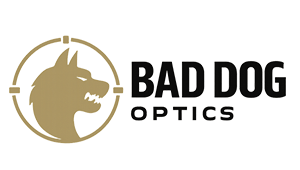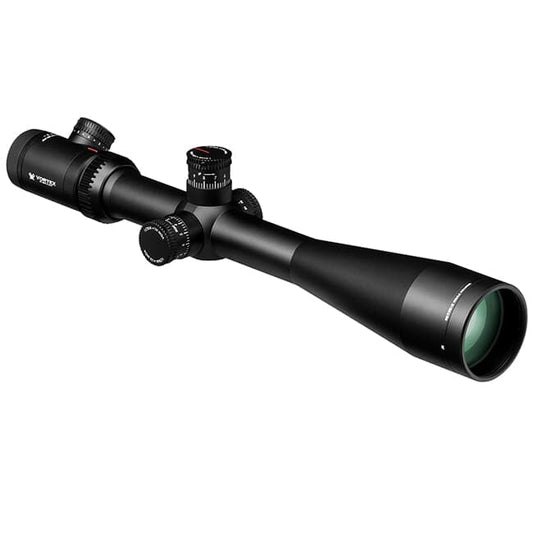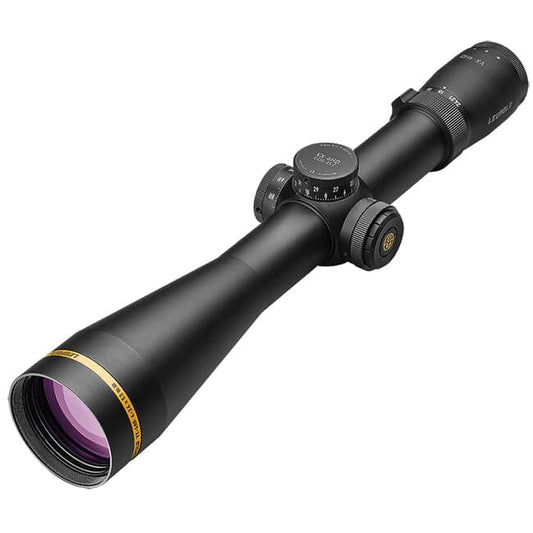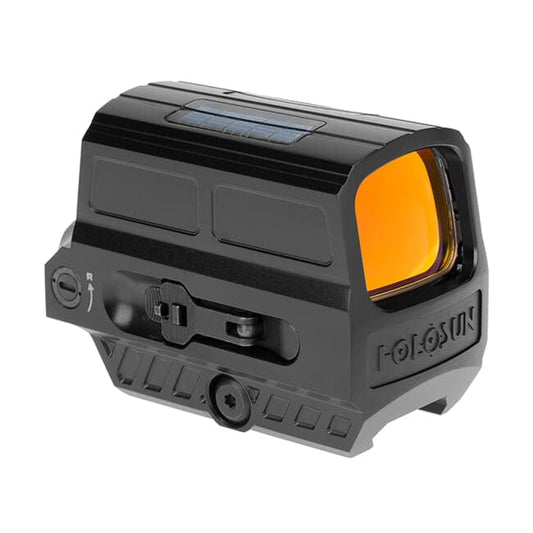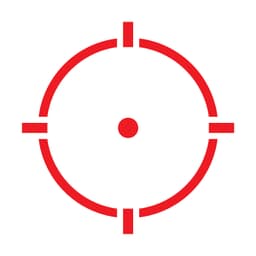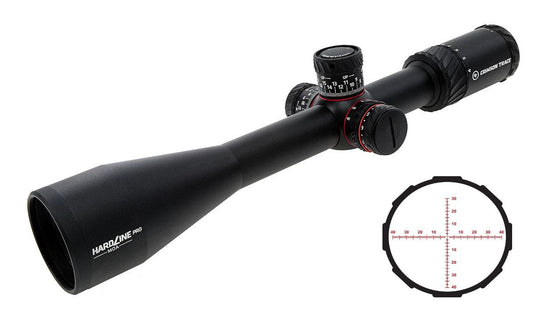

Crimson Trace Hardline Pro 4-16x50 MOA FFP offers precision with its first focal plane design, allowing accurate reticle use at any magnification level. This scope is equipped with an illuminated reticle, enhancing visibility in low-light environments, making it ideal for dawn and dusk hunting. With a wide magnification range of 4-16x, it adapts seamlessly to various shooting scenarios, from competitive shooting to tactical applications.
Constructed from aircraft-grade aluminum, this scope is built to withstand the rigors of outdoor use. Nitrogen purged to prevent fogging, it remains clear in various weather conditions. User-friendly controls ensure quick adjustments, making it a reliable choice for both beginners and experienced shooters. The matte black finish not only looks professional but also resists corrosion, ensuring long-lasting durability.
Key Features:
- ILLUMINATED RETICLE for optimal visibility in low-light conditions.
- PRECISE ADJUSTMENTS allow for rapid target acquisition and shooting accuracy.
- LIGHTWEIGHT DESIGN minimizes added weight to your rifle, enhancing mobility.
- DURABLE CONSTRUCTION ensures longevity, withstanding tough outdoor conditions.
- WIDE MAGNIFICATION RANGE (4-16x) for versatility in various shooting scenarios.
- BLACK ANODIZED FINISH for a sleek, professional look and corrosion resistance.
- FFP RETICLE maintains accurate holdovers at all magnification levels.
- USER-FRIENDLY CONTROLS for effortless adjustments during shooting sessions.
Technical Specifications Table
| Magnification | 4-16x |
|---|---|
| Lens Diameter | 50mm |
| Weight | 24 oz |
| Length | 14.5 inches |
| Material | Aircraft-grade aluminum |
What’s in the Box?
- Crimson Trace Hardline Pro 4-16x50 MOA FFP Riflescope
- Lens covers
- Padded case
- Neck strap
Customer Reviews
"The clarity and precision of this scope are incredible! I can spot my targets at dusk without any issues." – Mark T.
"This is my go-to scope for competitions. The adjustments are quick and easy!" – Sarah L.
FAQ
1. How does the illuminated reticle work?
The illuminated reticle enhances visibility in low-light environments, allowing for accurate shooting during dusk or dawn. You can adjust the brightness based on your surroundings.
2. Is the scope suitable for long-range shooting?
Absolutely! The Crimson Trace Hardline Pro 4-16x50 MOA FFP features a wide magnification range, making it ideal for both short and long-range targets.
3. What is the weight of the scope?
This scope weighs only 24 oz, ensuring it won’t add unnecessary weight to your rifle, which is crucial for extended shooting sessions.
4. Can I use this scope in inclement weather?
Yes, the durable construction and weatherproof design make it suitable for various weather conditions, providing reliability when you need it most.
5. How does it compare to other models?
The Crimson Trace Hardline Pro 4-16x50 MOA FFP stands out with its illuminated reticle and FFP design, offering a level of precision and clarity that many competitors lack.
Similar Models
If you're seeking exceptional optics for your adventures, explore our extensive lineup, including the Crimson Trace Hardline Pro 6-24x50 for even greater magnification options and clarity. Discover our full collection for optics tailored specifically for precision shooting.
You May Also Like
Here’s some of our most similar products people are buying. Click to discover trending style.
